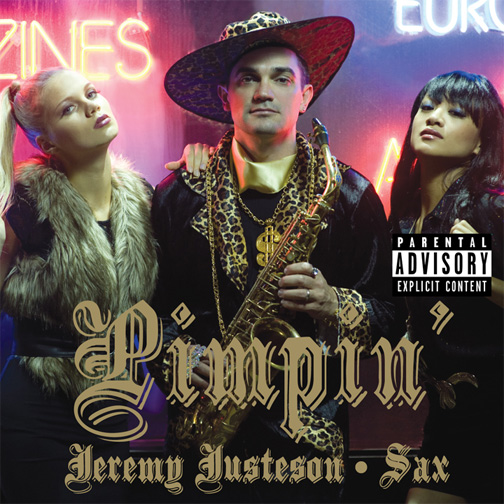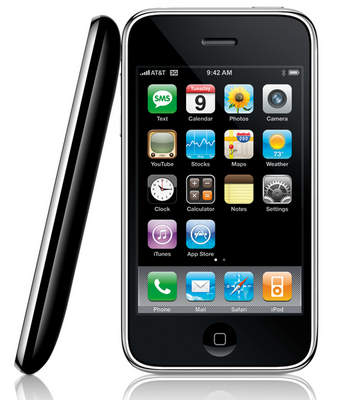Two years ago, Peter Bay, the spirited, energetic, world-class conductor of the Austin Symphony Orchestra, was checking out my website. He noticed that one of my orchestral works, Slightly Comic Overture—my very first completed orchestral work—had never been performed. I always thought it needed a few revisions, but I just never got around to revising it.
Peter asked me if it was any good, and if it was, would it be OK if he premiered it at Mostly Modern Festival? I thought, why not? It would be fun to revisit this piece and apply the knowledge I have now about orchestral writing to something I composed in my mid-20s. My hope was that anything that I updated would only enhance the piece and not change the nature of what I originally composed or cause it to lose its youthful spirit. In that sense, this piece is a hybrid, combining youthful exuberance with experience and moments of seriousness with a playful sense of humor.
This is the story about that process and how an orchestral work that was composed over twenty-five years ago finally received a world premiere.
But before I go on, what exactly is an overture?
An orchestral overture usually comes before an opera or other large work and is usually an introduction to something more substantial. In this case, Slightly Comic Overture is a stand-alone piece, in the spirit of an overture, but without being attached to anything else. As my first orchestral work, it was inspired by the music of Leonard Bernstein (one of my heroes back then) and cartoon music, and to a lesser extent, music by Aaron Copland, Béla Bartók, and Alfred Schnittke.
Regarding humor in music, serious composers generally do not find humorous music very funny, and composing is serious business—so they say. After all: if you’re trying to be funny, then perhaps you’re not taking yourself seriously. Maybe my way around this was titling it Slightly Comic Overture rather than just “Comic” Overture. Maybe I was trying to find a middle ground, like how younger composers (and even some old ones) use mezzo-piano, the most noncommittal of dynamics, the dynamic many inexperienced composers use the way a five-year-old uses ketchup. But even if this title is the equivalent of a middling dynamic, I think it needs to stay because it represents the sense of humor and youthful spirit that surrounded this piece at the time I wrote it. Even if I decided to keep the title, the piece itself needed an update.
There are various ways I could have approached revising this piece, especially since it was written over a lifetime ago. Many aspects are still "me": copious articulations, liberal use of dynamics, and perhaps most acutely, a puckish sense of humor. That I chose to write something humorous as my first orchestral work out of the gate says something, although I’m not sure what. That I wanted to be funny? Perhaps, but I think what I was thinking at the time is that I did not want to fall into the trap of needing to feel deep and introspective. I felt like almost everyone was doing that, although at a place like Indiana University Jacobs School of Music and in the Aspen Music Festival and School, where I wrote this piece, I could try something different and get away with it.
Many teachers will tell you not to go back and revise something you created when you were younger because, most of the time, it’s probably not very good to begin with. The unspoken thought is: perhaps it would be better to use your manuscript as kindling or hampster bedding. Sometimes revising is worth it, but sometimes it’s not. I definitely think it was in this case, but audiences can be the judge.
I had a ton of fun revising it, or more accurately, correcting it. It was tough to admit that I made some pretty dumb mistakes back then. A few passages were more difficult than needed, and other sections were woefully under-orchestrated. Some notes were written for the wrong instrument (flute when it should have been piccolo, for example), and some phrases were missing slurs. All that aside, what surprised me most was how much I still love the piece. The form is really tight, and I barely changed anything with regard to that. My sense of timbral color was also pretty good back then if I might be so bold!
In a strange way, I thought I betrayed this piece by ignoring it for so long, the way someone might lose touch with a long-lost friend. Perhaps I could have worked harder to get this piece performed early on, but I think the initial reading was pretty devastating, and I still had a lot to learn. At least now, thanks to Peter, I had an opportunity to make up for lost time, and this piece is all the better for it.
While I was a Master’s student at IU in Bloomington, the composition department offered orchestral readings for the composition students, which is pretty exciting. It’s difficult in the real world to receive readings of new orchestral works, let alone actual performances, especially when you are young, so when schools offer them, it’s a huge plus.
I arrived in the large rehearsal room and looked around at everyone warming up. A quarter of the orchestra was missing. There were still a few minutes left; surely everyone would show up, right? Unfortunately, this was it: an incomplete orchestra missing critical wind and brass instruments and an anemic string section.
Because it was a reading session, as is the tradition, the pieces were read through on the spot; no one practiced ahead of time. The strings squeaked through their parts, and the winds, brass, and percussion sections lumbered through theirs. The tempos were way too slow. Granted, they were too fast to begin with, but still: there is almost nothing more deflating than hearing a piece that’s supposed to go fast played painfully slow. On top of that, I think the conductor did not get enough sleep the night before, was hungover, or both. In the rush to wade through a bunch of student pieces, I received a minuscule amount of time with the orchestra; I think it was around ten minutes. They definitely did not read the entire piece, and it was only seven minutes long. On top of that, I could tell most of the students really didn’t want to be there. They probably wanted to practice their concertos and orchestral excerpts, not read down a piece by a living (i.e., not yet proven great, so why waste my time?) composer. I could almost hear what they were probably thinking: "Slightly Comic Overture? How dare he mock serious art! What is this? A musical?"
David Dzubay, one of the composition professors who was wrangling the readings, did his best to console me and was quite nice about what was on the page, but I could tell he was pretty upset at how poorly attended the reading session was. It should have been required for the students and not voluntary, which I think was the case. Maybe this mostly negative experience may have encouraged me to create the Mostly Modern Festival and Mostly Modern Festival | The Netherlands, two festivals that include orchestral readings for composers. Of course, there are other opportunities across the U.S., but very few with orchestras comprised of musicians who all love new music and want to be there and who may even be open to performing a piece of music that has a sense of humor.
I think with this piece, I was conscientiously poking fun at the establishment or at least trying to have a good chuckle. How can you not with a Lion’s Roar and a Cuíca emulating fart sounds and winds, brass, and percussion instruments that sound like chuckling?
Maybe, in the end, this piece—like many artistic gestures—is just an act of wanting to feel loved or at least wanting to connect. Back then, I think I was being a little bit of a troublemaker. But isn’t that half the fun of being young? You feel like you have nothing to lose.















 If you have any musical taste whatsoever, you probably do not rely on radio for your daily musical fix. Radio is useful for traveling, but it has always been limited, especially while driving across state lines, through forests and in back woods areas. Broadcasts cut out every few miles, but does this really matter? Most stations' programs are awful, particularly now that they are almost all controlled by
If you have any musical taste whatsoever, you probably do not rely on radio for your daily musical fix. Radio is useful for traveling, but it has always been limited, especially while driving across state lines, through forests and in back woods areas. Broadcasts cut out every few miles, but does this really matter? Most stations' programs are awful, particularly now that they are almost all controlled by